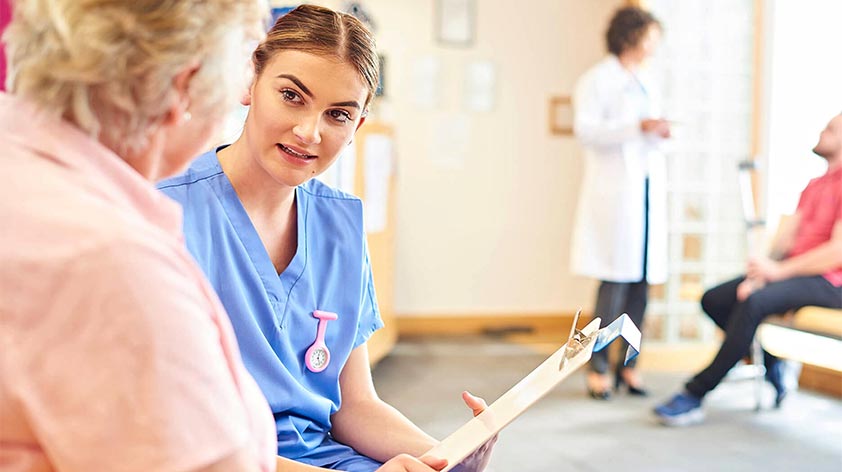
The ‘Big C’, or cancer is a topic many people try to avoid in conversation. Yet, it’s been a subject of my everyday lingo for the past 5 years at the no.2-ranked cancer hospital in the USA, Memorial Sloan Kettering, New York City. It’s hard to sum up 5 years of experience, since I gained so much knowledge, but let me try. If you know anyone who’s been newly diagnosed with cancer or is suffering from cancer right now, please consider my personal insights and share this article on Cancer: 5 Things I Learned from My 5 Years as an Oncology Nurse in NYC.
1. Life is Short, Live in the Present
It sounds cliché, but the number one lesson I’ve learned from these brave patients who found themselves in unlucky situations was to embrace each day. Shift after shift, I was amazed to see so many people live in the present rather than let their circumstances define them.
I found that not only were these patients happier than the ‘negative Nancies’ but, they often had better outcomes as a result of their positivity.
I used to think positive psychology was a lofty idea – well meaning, but not necessarily scientifically proven. However, working in oncology shifted my mindset and made me become a believer.
It’s very common for patients to see the diagnosis of cancer as an opportunity to indulge in all sorts of food. And yes, malignancies are often accompanied by tremendous weight loss; so, one would think any extra calories would only help. At least that was the way I viewed the oncology patient’s diet until I became acquainted with a particular patient that enlightened me to the links of diet and remission.
She recommended the book, “How to Starve Cancer” by Jane McLelland; which lays out specific dietary recommendations for patients to follow during treatment. It turns out certain foods feed cancer cells, while others starve them. This book and that patient’s outlook really changed my perspective on how to treat cancer holistically, rather than the old-fashioned ‘big pharma’ approach of everyday America.
3. Get into a Fitness Routine / Keep Exercising
I once had a patient who ran a marathon amidst treatment. It was the single-most inspiring case I had ever seen. Occasionally, I will treat patients that don’t let their circumstances define them and continue to pursue exceptional exercise goals, despite their diagnosis – and with good reason!
Exercise is known as the oldest remedy for depression and anxiety, boosting endorphins and attempting to mimic structural brain changes that antidepressants ‘appear’ to make. Aside from that, exercise is associated with lower cancer risks, especially in lung, colon, breast and bladder cancer.
4. Your Support Group is Key
All too often, I found myself taking care of patients with absolutely no family or friends. I couldn’t help but wonder how they found themselves in such an unfortunate situation, with no support.
More times than not, I saw these patients decline more rapidly; was it because they had nothing, or no one to live for? At the same time, I saw many patients rally together and thrive, because they had a dependable and supportive group of people behind them. Emotional connection is seen as tremendously helpful and worthwhile and without it, our morbidity appears to increase. For those in the know, meditative practices can also bring a huge amount of solace.
5. Quality of Lifestyle (QoL) is Essential
Whether it was in the hospital treating those on their death beds, or in the infusion clinic seeing transfusion-dependent patients day after day; I learned that quality of life is everything.
While support groups are super-important, there is a common occurrence when patients are peer-pressured into persistent treatment, because their loved ones are too scared to lose them. I’ve seen the joy fade from their eyes visit after visit, as the treatment continues to wear them down.
But one thing’s sure: when patients determine their own path, and take their future into their own hands, they are happier. Oncology care comes with a lot of tough decisions – often, there’s a decision to give up on or forgo treatment. But each time I see patients pursue that path, it’s like a great weight off their shoulders. Sure, it’s sad. But at the same time, it’s a better quality of life, and that’s everything.
The field of oncology is a tough one, but it’s given me a wealth of knowledge I don’t think I would have gained any other way. I am grateful for the lessons, the patients and even the tears. But I’m looking forward to pursing my true passion, which is writing, and is actually why I’m writing this. Because, as I’ve learned, quality of life is everything.
What are your thoughts on the subject of cancer and how a healthy lifestyle, positive thinking, diet and exercise affects it? Let us know in the comments below, and join in the conversation on Facebook, Twitter & Instagram!









